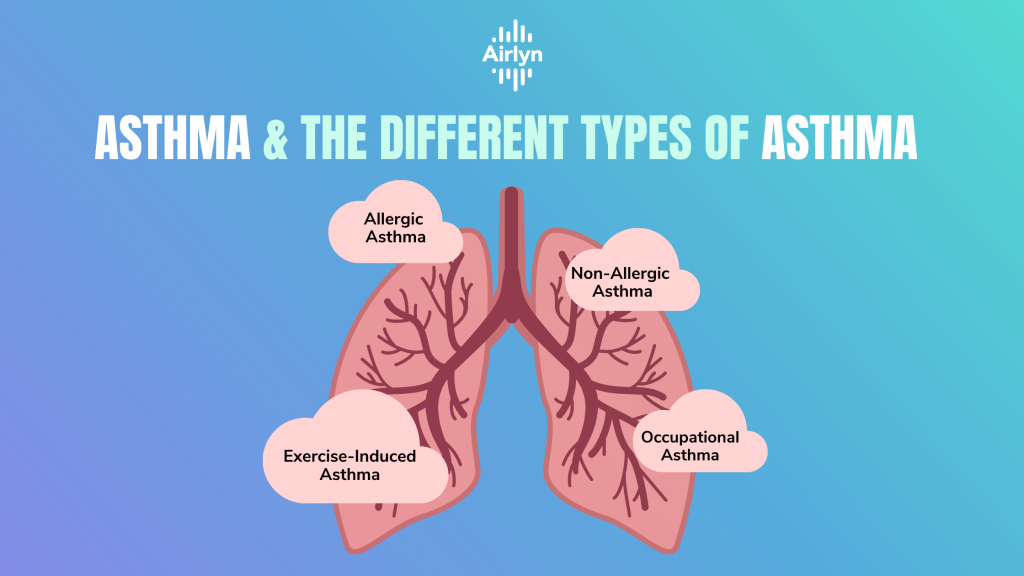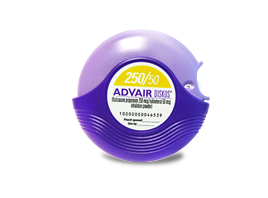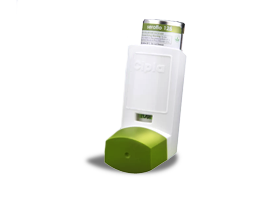
Overview of Allergy and Asthma: Allergy and asthma are two common respiratory conditions that affect millions of people worldwide. Allergies occur when the immune system reacts excessively to harmless substances, such as pollen, dust mites, or certain foods, leading to symptoms like sneezing, itching, and wheezing. Asthma, on the other hand, is a chronic inflammatory condition of the airways characterized by recurrent episodes of wheezing, breathlessness, chest tightness, and coughing. Both conditions can significantly impact a person’s quality of life and may require ongoing management and treatment.
The Importance of Proper Treatment and Prevention: Effective management and prevention strategies are crucial in controlling allergies and asthma and reducing their impact on daily life. Proper treatment, including medication, avoidance of triggers, and lifestyle modifications, can help alleviate symptoms and prevent exacerbations. Early diagnosis and intervention are key to preventing complications and improving long-term outcomes. Additionally, educating patients and the public about allergy and asthma management can empower individuals to take control of their health and make informed decisions about their care.
What are Allergy and Asthma?
Definition and Explanation of Key Characteristics: Allergy is a condition where the immune system reacts excessively to typically harmless substances, leading to a range of symptoms such as sneezing, itching, and rashes. Asthma, on the other hand, is a chronic respiratory condition characterized by inflammation and narrowing of the airways, resulting in symptoms like wheezing, shortness of breath, chest tightness, and coughing.
Distinguishing Allergy from Asthma: While both allergy and asthma involve the respiratory system, they differ in their primary mechanisms and symptoms. Allergies typically manifest as reactions to specific triggers, such as pollen, pet dander, or certain foods, resulting in symptoms like itching, congestion, and watery eyes. Asthma, on the other hand, involves chronic inflammation of the airways, often triggered by allergens, pollutants, or respiratory infections, leading to symptoms like wheezing, coughing, and difficulty breathing. Despite these differences, allergies and asthma can often coexist and may require similar management strategies for symptom control and prevention of exacerbations.
Causes and Triggers:
Primary Factors Contributing to Allergic Reactions and Asthma: Allergic reactions and asthma can be triggered by a variety of factors, including airborne allergens such as pollen, dust mites, pet dander, mold spores, and certain foods. Additionally, environmental pollutants like smoke, air pollution, and strong odors can exacerbate symptoms in individuals with allergies and asthma. Other triggers may include respiratory infections, exercise, cold air, and stress.
Substances and Situations that Can Aggravate Symptoms: Certain substances and situations can worsen symptoms of allergies and asthma. For example, exposure to tobacco smoke or strong chemical odors can irritate the airways and exacerbate respiratory symptoms. Pollen counts and air quality levels can also affect symptom severity, with high pollen levels and poor air quality often leading to increased symptoms. In addition, respiratory infections like colds and flu can trigger asthma exacerbations, as can physical exertion, especially in cold or dry environments.
Symptoms:
Primary Signs of Allergic Reactions and Asthma: The symptoms of allergies and asthma can vary depending on the individual and the severity of the condition. Common symptoms of allergies include sneezing, itching, nasal congestion, watery eyes, and skin rashes. In more severe cases, allergies can lead to difficulty breathing, chest tightness, and anaphylaxis, a life-threatening allergic reaction. Asthma symptoms often include wheezing, shortness of breath, chest tightness, and coughing, particularly at night or early in the morning.
How to Recognize Them in Yourself or Others: Recognizing the symptoms of allergies and asthma is important for prompt diagnosis and treatment. If you experience recurrent episodes of sneezing, itching, congestion, or breathing difficulties, especially after exposure to potential allergens or triggers, it may indicate underlying allergies or asthma. Similarly, if you notice these symptoms in others, particularly during specific seasons or in certain environments, they may be experiencing allergic reactions or asthma exacerbations. Seeking medical evaluation and diagnosis can help confirm the presence of these conditions and guide appropriate management strategies.
Diagnosis:
Methods of Diagnosing Allergy and Asthma: Diagnosing allergies and asthma typically involves a combination of medical history, physical examination, and diagnostic tests. For allergies, skin prick tests or blood tests (specifically IgE tests) can identify allergens that trigger allergic reactions. Skin prick tests involve introducing small amounts of allergens into the skin and observing for allergic reactions, while blood tests measure levels of specific IgE antibodies to detect allergic sensitivities. For asthma, pulmonary function tests (such as spirometry and peak flow measurements) are commonly used to assess lung function and airway responsiveness. Additionally, allergy testing may also be performed to identify allergic triggers that exacerbate asthma symptoms.
The Importance of Consulting a Doctor and Undergoing Tests: Seeking medical evaluation and diagnostic testing is crucial for accurate diagnosis and effective management of allergies and asthma. While self-diagnosis based on symptoms alone may provide some insight, it is essential to consult a healthcare professional for proper evaluation and confirmation of the underlying condition. Diagnostic tests conducted by healthcare providers can help identify specific allergens or triggers that may be contributing to symptoms, guiding personalized treatment plans and allergen avoidance strategies. Early diagnosis and intervention can also help prevent complications and improve long-term outcomes for individuals with allergies and asthma. Therefore, it is important to prioritize seeking medical attention and undergoing diagnostic testing if you suspect you may have allergies or asthma.
Treatment and Management:
Various Treatment Methods for Allergy and Asthma: Medications, Specialized Procedures, Lifestyle Changes: Treating allergies and asthma typically involves a multifaceted approach aimed at controlling symptoms, reducing inflammation, and preventing exacerbations. Medications commonly used to manage allergies include antihistamines, nasal corticosteroids, decongestants, and allergy shots (immunotherapy). These medications help alleviate symptoms and reduce the body’s allergic response to specific triggers. For asthma management, bronchodilators (such as beta-agonists and anticholinergics) are often prescribed to relax the airway muscles and improve airflow, while inhaled corticosteroids help reduce airway inflammation and prevent asthma attacks. In severe cases, biologic therapies or oral corticosteroids may be recommended. Additionally, specialized procedures such as allergen immunotherapy, bronchial thermoplasty, and biologic therapy injections may be considered for individuals with severe or uncontrolled allergies or asthma. Lifestyle changes, including allergen avoidance, smoking cessation, regular exercise, and maintaining a healthy diet, can also play a crucial role in managing symptoms and improving overall health.
How to Control Symptoms and Enhance Quality of Life: Controlling symptoms and improving quality of life for individuals with allergies and asthma involves proactive management and adherence to treatment plans. This includes taking medications as prescribed, avoiding known triggers, and adopting healthy lifestyle habits. Regular monitoring of symptoms and lung function, as well as keeping track of potential triggers, can help identify patterns and adjust treatment strategies accordingly. Developing an asthma action plan in collaboration with a healthcare provider can provide guidance on how to recognize worsening symptoms and when to seek medical attention. Additionally, staying informed about new treatment options and advancements in allergy and asthma management can empower individuals to take an active role in their healthcare and make informed decisions about their treatment. By effectively managing symptoms and reducing the frequency of exacerbations, individuals with allergies and asthma can enjoy improved quality of life and better overall health outcomes.
Prevention:
Measures to Prevent Allergic Reactions and Asthma: Preventing allergic reactions and asthma exacerbations involves identifying and avoiding triggers that can provoke symptoms. For allergies, common triggers include airborne allergens such as pollen, dust mites, pet dander, mold spores, and certain foods. Measures to reduce exposure to these allergens may include using air purifiers, regularly cleaning and dusting living areas, covering mattresses and pillows with allergen-proof covers, and keeping pets out of bedrooms. For asthma prevention, minimizing exposure to environmental irritants such as tobacco smoke, air pollution, and strong odors can help reduce the risk of asthma attacks. Additionally, staying up-to-date with vaccinations, particularly flu shots, can help prevent respiratory infections that can trigger asthma exacerbations.
Steps to Reduce Risk: Reducing the risk of allergies and asthma involves adopting proactive measures to create a healthy and allergen-friendly environment. Some steps individuals can take to reduce their risk of developing allergies and asthma or experiencing exacerbations include:
- Avoiding exposure to known allergens and irritants, such as cigarette smoke, air pollution, and chemical fumes.
- Keeping indoor spaces clean and well-ventilated to minimize dust, mold, and other indoor allergens.
- Using allergy-proof covers on pillows and mattresses and regularly washing bedding in hot water to eliminate dust mites.
- Implementing a regular cleaning schedule to remove dust, pet dander, and mold from surfaces and carpets.
- Keeping windows closed during high pollen seasons and using air purifiers with HEPA filters to reduce airborne allergens indoors.
- Monitoring pollen and air quality levels and avoiding outdoor activities during peak allergen times.
- Taking preventive medications as prescribed, particularly before exposure to known triggers or during allergy seasons.
- Following a healthy lifestyle, including regular exercise, a balanced diet, and managing stress, to support overall immune health and respiratory function.
- Seeking medical advice and guidance on allergy testing and prevention strategies from healthcare professionals, particularly for individuals with a family history of allergies or asthma.
By implementing these preventive measures and minimizing exposure to allergens and irritants, individuals can reduce their risk of developing allergies and asthma and improve their overall respiratory health and quality of life.
The Role of Medications:
Overview of Antiallergic and Asthma Medications: Antiallergic and asthma medications play a crucial role in managing symptoms and preventing exacerbations in individuals with allergies and asthma. These medications encompass a variety of drugs aimed at controlling allergic reactions, reducing inflammation, relaxing airway muscles, and improving lung function. Commonly prescribed antiallergic medications include antihistamines, which block the action of histamine to alleviate symptoms like itching, sneezing, and runny nose. Nasal corticosteroids are also frequently used to reduce nasal inflammation and congestion associated with allergies. For asthma management, bronchodilators such as beta-agonists and anticholinergics are commonly prescribed to relax airway muscles and improve airflow. Inhaled corticosteroids are another mainstay of asthma treatment, helping to reduce airway inflammation and prevent asthma attacks. In severe or uncontrolled cases, biologic therapies or oral corticosteroids may be recommended.
How They Help Control Symptoms and Prevent Exacerbations: Antiallergic and asthma medications work by targeting different aspects of the underlying mechanisms of allergies and asthma to control symptoms and prevent exacerbations. Antihistamines block the effects of histamine, a chemical released during allergic reactions, to alleviate symptoms such as itching, sneezing, and runny nose. Nasal corticosteroids reduce inflammation in the nasal passages, relieving congestion and improving airflow. In asthma management, bronchodilators relax the muscles surrounding the airways, making it easier to breathe and alleviating symptoms like wheezing and shortness of breath. Inhaled corticosteroids help reduce inflammation in the airways, making them less reactive and prone to asthma attacks. Biologic therapies target specific immune pathways involved in allergic and asthmatic responses to provide targeted relief for individuals with severe or uncontrolled symptoms. By effectively controlling symptoms and reducing airway inflammation, these medications help individuals with allergies and asthma achieve better symptom control, improve lung function, and prevent exacerbations, ultimately enhancing their quality of life and reducing the risk of complications associated with these conditions.
Support and Resources:

Where to Find Additional Information and Support for Individuals with Allergies and Asthma: For individuals living with allergies and asthma, accessing additional information and support is essential for managing their condition effectively and improving their quality of life. There are numerous organizations and online resources dedicated to providing education, support, and advocacy for individuals affected by allergies and asthma. These resources offer a wealth of information on understanding the conditions, managing symptoms, and accessing appropriate treatment options. Additionally, they may provide opportunities for connecting with others who share similar experiences and offer support and encouragement.
Organizations and Online Resources:
- American Academy of Allergy, Asthma & Immunology (AAAAI): A professional organization dedicated to advancing the understanding and treatment of allergies, asthma, and immunologic diseases. Their website offers resources for patients, including educational materials, treatment guidelines, and a searchable database of allergists and immunologists.
- Asthma and Allergy Foundation of America (AAFA): A nonprofit organization dedicated to improving the quality of life for individuals with asthma and allergies through education, advocacy, and support. Their website provides information on managing asthma and allergies, resources for finding support groups, and tools for tracking symptoms and medications.
- National Asthma Council Australia: An organization committed to promoting optimal asthma care through education, research, and advocacy. Their website offers evidence-based resources and guidelines for managing asthma, as well as educational materials for patients and healthcare professionals.
- Allergy UK: A leading charity organization in the United Kingdom dedicated to supporting individuals affected by allergies and intolerances. Their website provides information on allergy management, advice on allergen avoidance, and support services, including helplines and online forums.
- Centers for Disease Control and Prevention (CDC): The CDC offers comprehensive information on asthma, including data and statistics, educational materials, and resources for healthcare professionals and patients. Their website also provides tips for asthma management and guidance on creating asthma-friendly environments.
These organizations and online resources serve as valuable sources of information, support, and guidance for individuals living with allergies and asthma. By accessing these resources, individuals can empower themselves with knowledge, connect with others facing similar challenges, and access the support they need to effectively manage their condition and lead healthy, fulfilling lives.
The Importance of Regular Monitoring, Seeking Medical Attention, and Following Recommendations for Effective Allergy and Asthma Management:
Regular monitoring of one’s condition, seeking timely medical attention, and adhering to healthcare recommendations are crucial elements in effectively managing allergies and asthma. By staying vigilant and proactive in monitoring symptoms and lung function, individuals can detect any changes or worsening of their condition early on, allowing for prompt intervention and treatment adjustments as needed. Consulting with a healthcare provider regularly enables individuals to receive personalized care, including appropriate medication management, allergy testing, and asthma action planning. Following healthcare recommendations, such as taking prescribed medications as directed, avoiding known triggers, and maintaining a healthy lifestyle, are essential for controlling symptoms and preventing exacerbations. By actively participating in their healthcare and adhering to recommended guidelines, individuals can optimize their treatment outcomes and minimize the impact of allergies and asthma on their daily lives.
Call to Action: Seeking Help and Support if the Reader or Their Loved Ones Experience Similar Issues:
If you or someone you care about is struggling with allergies or asthma, it’s important to seek help and support. Don’t hesitate to reach out to healthcare professionals for guidance and assistance in managing these conditions effectively. Whether it’s scheduling a consultation with an allergist or pulmonologist, joining a support group, or accessing online resources, there are numerous avenues available for obtaining help and support. Remember, you’re not alone in facing these challenges, and seeking help is the first step toward better health and well-being. Don’t delay in reaching out for assistance if you or your loved ones are experiencing symptoms or difficulties related to allergies or asthma. Your health and quality of life are worth prioritizing, and there are resources and support networks available to help you navigate these conditions successfully.















